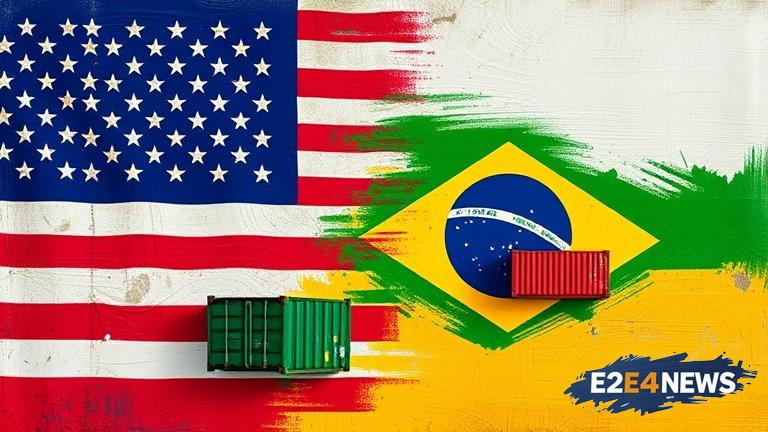The United States has imposed a 50% tariff on imports from Brazil, in a move aimed at protecting American industries. The tariff, which was announced recently, will apply to a range of Brazilian products, including steel and aluminum. However, key sectors such as aircraft and energy have been exempted from the tariff. The move is seen as a significant escalation of trade tensions between the two countries. The US has been seeking to reduce its trade deficit with Brazil, which has been growing in recent years. The tariff is expected to have a significant impact on Brazilian exporters, who will have to pay a higher price to export their goods to the US. The Brazilian government has expressed disappointment at the move, and has vowed to take retaliatory action. The US has been imposing tariffs on a range of countries in recent years, including China, Canada, and Mexico. The move has been criticized by many as a form of protectionism, which could harm global trade. The US has argued that the tariffs are necessary to protect American industries, which have been struggling to compete with cheap imports. The tariff on Brazilian imports is expected to have a significant impact on the global economy, particularly in the steel and aluminum sectors. The move has also raised concerns about the potential for a trade war between the US and Brazil. The two countries have a significant trade relationship, with the US being one of Brazil’s largest trading partners. The tariff is expected to have a major impact on Brazilian companies, which will have to find new markets for their products. The US has also been seeking to reduce its dependence on foreign oil, and has been promoting the use of domestic energy sources. The exemption of the energy sector from the tariff is seen as a significant move, as it will allow Brazilian energy companies to continue exporting to the US. The aircraft sector has also been exempted, which is seen as a major relief for Brazilian plane maker Embraer. The company has a significant presence in the US, and the tariff would have had a major impact on its operations. The US has been seeking to promote the use of domestic aircraft, and has been providing support to American plane makers. The move is seen as a significant challenge to Brazilian companies, which will have to compete with American companies in the US market. The tariff is expected to have a significant impact on the global trade landscape, and could lead to a major shift in the way countries trade with each other. The US has been promoting the use of tariffs as a tool to protect American industries, and has been using them to negotiate trade deals with other countries. The move has raised concerns about the potential for a global trade war, which could have significant consequences for the global economy. The Brazilian government has vowed to take action to protect its industries, and has been seeking support from other countries. The move is seen as a significant challenge to the global trading system, and could lead to a major overhaul of the way countries trade with each other.
